Hyperlinks to these search engines would have assisted us in entering them into our favourites/bookmarks efficiently.
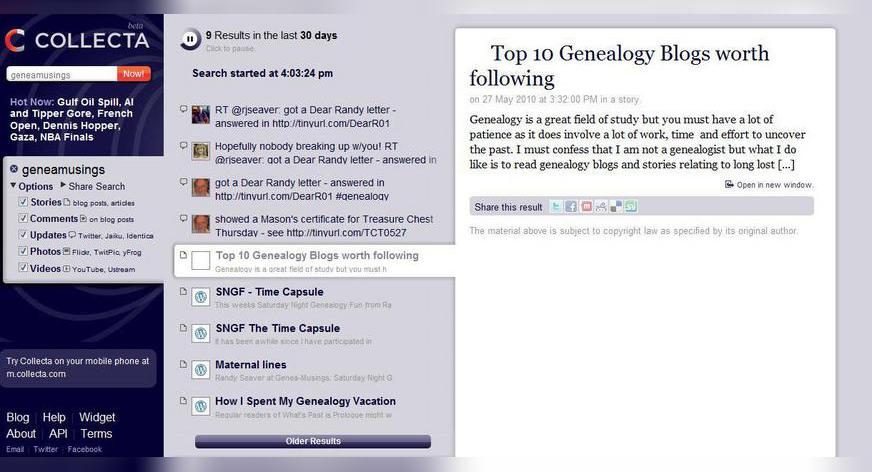

Search engines aren’t the most talked-about of online genealogy tools, but are in many ways one of the most important. They’re frequently used to check facts, or to find more information on a person or place. They’re also the gateway to many of the other resources out there. If you have a records site you use, or a particular blog you visit, there’s a fair chance you got there first by a search engine.
One thing that’s interesting about the search engine market is how under-utilized the majority of it is. Google currently hosts around two-thirds of internet search, with Yahoo and Bing – which people use for similar reasons – taking up an additional 28%. Among genealogists, who are often conservative in their browsing habits, this trend may be even more stark. It’s like an ice cream parlor where no one’s ordering anything except vanilla.
This post, then, will introduce you to some other search options that are out there. These resources aren’t so much alternatives to Google as they are complements; they simply do different things. Take a look and see what you think.
Wolfram Alpha
Wolfram Alpha is a bit different to your regular search engine. Whereas Google responds to particular keywords with suggestions for relevant websites, Wolfram Alpha simply answers questions. It’s a bit like Google’s smart yet introverted cousin: it won’t be able to rattle off a list of suggestions for you to look at, but if you ask it a straight factual question there’s a fair chance it’ll have an answer.
This is useful in genealogy for when you have a nagging question on the tip of your tongue. Let’s say that one of your ancestors left $500 to a relative upon their death in 1950, and you wanted to get a sense for how much this was worth. If you plug in the question “how much is $500 (1950 dollars)?”, Wolfram will quickly come back and give you an answer (which you can see below).
The search engine works for other questions, too. Let’s say your Connecticut family has roots in a town called ‘Stroud’ which you’ve never heard of, or that you’ve heard the word ‘consanguinity’ but you’re not sure what it means. Ask about these and Wolfram Alpha will pull you up speedy answers (a market town in Glocestershire, England and a relationship by blood, respectively).
The tool also has at least one direct genealogical function. If you want to find out precisely how closely a relation connects to you, you can enter the type of relation they are to find out. So if you ask Wolfram Alpha ‘what the hell is a third cousin’s great-grandson?’ (as I just did), it’ll pull out a sample tree to show how this connection fits together, and will give you some fractions and percentages as to how close the blood relation is.
Blinkx
Blinkx, much like Wolfram Alpha, does something completely different. It doesn’t search for websites or even text, but for streaming media such as video and audio content. And it does this not by analyzing tags and description boxes, but by using speech recognition to match the content of multimedia with search queries. That means it catches everything in YouTube and Google Video, but a whole lot more besides.
It’s useful in the geneasphere for at least two reasons. First, it lets you search for any of the many video podcasts, how-to pieces, documentaries, or other interesting material that’s out there. Secondly, it allows you to find archive video footage. For our tree of Queen Elizabeth II, this was the tool we used to identify archive videos of her coronation in the early 50s.
Boardreader’s a great tool when it comes to finding out what people are talking about online. It searches through message boards, discussion forums, newsgroups, and so on, and matches your search queries to ongoing conversations.
Why is this useful for genealogy? Well, it gives you a different angle on things if you’re looking for information. If, for instance, you want to find out about a new genealogy product, it’ll show you the public discussions people have been having about that product on the various forums on the web – and often these are more down-to-earth than information you’ll find elsewhere. It’s more like eavesdropping on a conversation than opening a magazine to read a review.
It’s also a useful tool simply find useful message boards in the first place. As we blogged here, there are plenty of genealogy message boards that are worth joining. Using boardreader is a good way to find one that’s right for you.
Collecta
Collecta is able to show you all the live data for a particular search query – blogs, comments on blogs, twitter updates, photo uploads, and so on.
This is really handy if you want to get an idea of the ‘buzz’ surrounding a particular topic. It’s particularly useful if you’re a geneablogger yourself.
For instance, if I wanted to find out what was being said about ‘geneamusings’ in social media, I could plug that into the search and get an idea pretty quickly. It’s a neat tool for getting your social media searches in one place.
Those are some of our search ideas, but what about yours? If you have any thoughts or suggestions of your own, drop us a message in the comment box below.
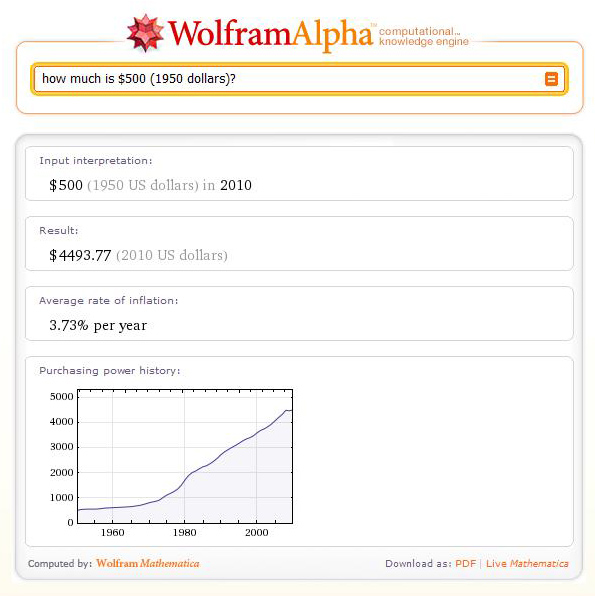
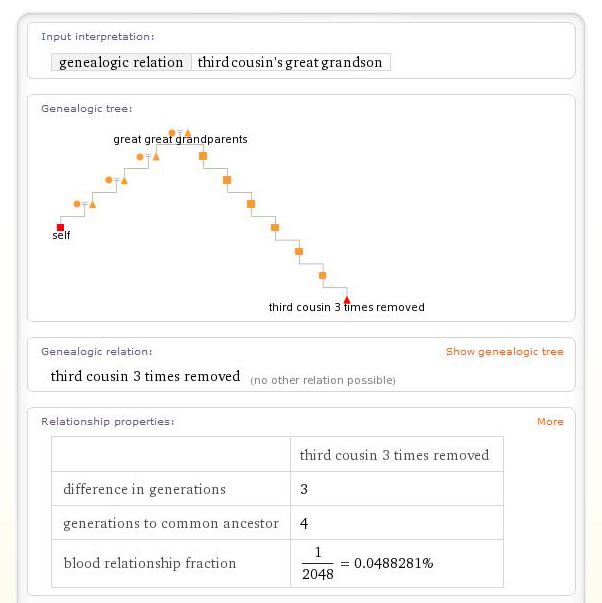
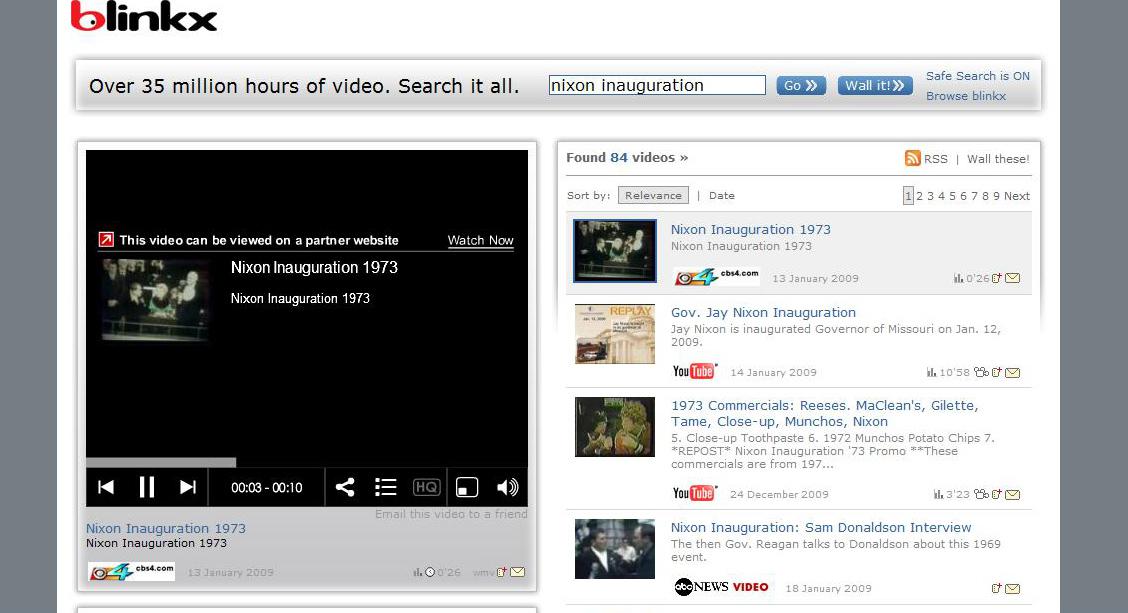

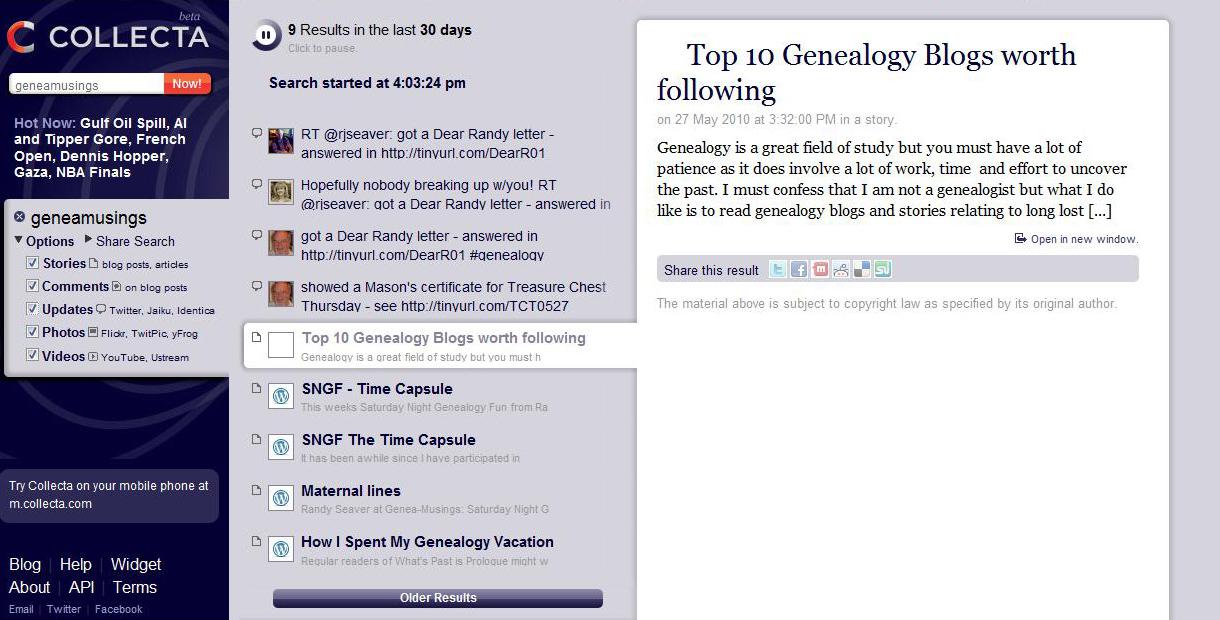










mrs patricia elain smith mosser
June 7, 2010
TO WHOM THIS MAY CONCERN, MY NAME IS MRS PATRICIA ELAIN SMITH MOSSER. I HAVE A SON WHO NEED TO KNOW IF WE HAVE ANY IDIAN IN OUR FAMILYS. WHY? SO HE CAN HAVE HIS OWN DEALASHIP. SHOULD NOT HAVE TO PAY ANY MONEY TO FIND THIS OUT. MY GRAND FATHER NAME IS WILLIAM OSTRANDES LIVED IN TWINNING M ICHIGAN. HE LOOK LIKE A IDIAN.. MY MOTHER FULL NAME IS LEATTA MAY OSTRANDES SMITH. SHE LIVED IN WATERFORD MICHIGAN. HER BORN DATE IS OCT 13 1903. I WOPULD DEEPLY BE THANKFULL FOR MY SON. GOD BLESS, MRS PATRICIA SMITH MOSSER. PS PHONE NUMBER 989-826-2206 MY E-MAIL ADDRESS IS i thank you kindly